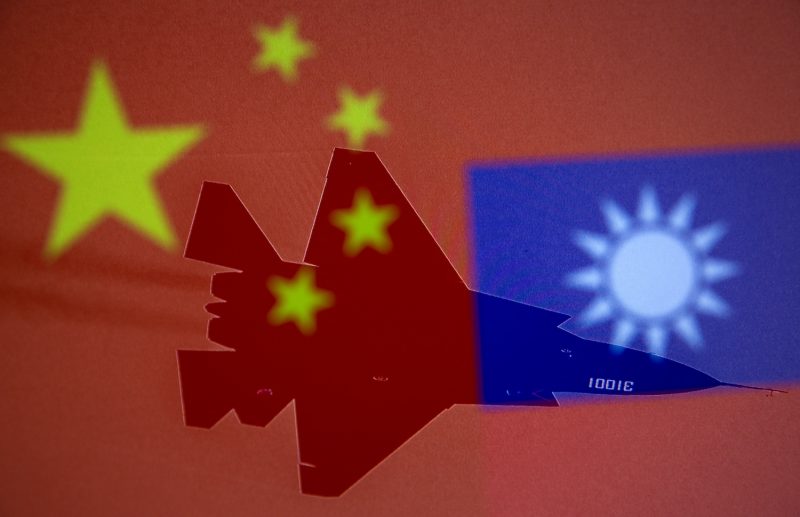US President Joe Biden’s national security adviser Jake Sullivan will hold talks with China‘s top diplomat Yang Jiechi in Switzerland on Wednesday.
The meeting in Zurich comes at a time of heightened tensions between the world’s two largest economies over a range of issues, most notably Taiwan.
It will be Sullivan’s first face-to-face meeting with Yang since their acrimonious exchanges in Alaska in March, which also involved US Secretary of State Antony Blinken.
US President Joe Biden told reporters on Tuesday he had spoken to Chinese President Xi Jinping about Taiwan and they agreed to abide by the “Taiwan agreement,” as tensions have ratcheted up between Taipei and Beijing.
“I’ve spoken with Xi about Taiwan. We agree … we’ll abide by the Taiwan agreement,” he said. “We made it clear that I don’t think he should be doing anything other than abiding by the agreement.”
Biden appeared to be referring to Washington’s longstanding policy under which it officially recognises Beijing rather than Taipei, and the Taiwan Relations Act, which makes clear that the US decision to establish diplomatic ties with Beijing instead of Taiwan rests upon the expectation that the future of Taiwan will be determined by peaceful means.
While that act binds the United States to provide Taiwan with the means to defend itself, Washington only acknowledges China’s stance that the island belongs to it and that there is “one China,” and takes no position on Taiwan’s sovereignty.
Taiwan’s Foreign Ministry said it had sought clarification from the United States about Biden’s comments, and were reassured US policy towards Taiwan had not changed, the US commitment to them was “rock solid” and that the US will continue to help Taiwan maintain its defences.
Flyovers Ramp Up Tension
“Facing the Chinese government’s military, diplomatic and economic threats, Taiwan and the United States have always maintained close and smooth communication channels,” it said, noting recent US comments of concern about China’s activities.
The remarks to reporters at the White House – made after Biden’s return from a trip to Michigan touting a spending package – come amid escalations in the Taiwan-China relationship.
China claims Taiwan as its own territory, which should be taken by force if necessary. Taiwan says it is an independent country and will defend its freedoms and democracy, blaming China for the tensions.
Taiwan has reported 148 Chinese air-force planes in the southern and southwestern parts of its air defence zone over a four-day period beginning on Friday, the same day China marked a key patriotic holiday, National Day.
“These incursions follow large military exercises conducted by US allies which included three aircraft carriers in the East Philippine Sea. Given that the exercises by US allies are scheduled, the events are unlikely to escalate into conflict,” BCA Research said in a note on Wednesday.
“Nevertheless, the shows of force by competing global powers highlight that a major geopolitical incident (or even war) remains a key ongoing risk.”
Computer chips
It said great power competition was “a tailwind for global defence stocks” but there were also serious risks for the computer chip sector because “Taiwan is home to the world’s largest semiconductor manufacturer [and] global semiconductor supplies are vulnerable to a US-China clash”.
“This vulnerability raises the likelihood that US manufacturers will increase domestic production in order to avert the risk that chip supplies are caught in the crosshairs of great power competition,” BCA said.
Meanwhile, Taiwan’s Defence Minister Chiu Kuo-cheng said on Wednesday the situation was “the most serious” in more than 40 years since he joined the military, adding there was a risk of a “misfire” across the sensitive Taiwan Strait.
The United States urged China on Sunday to stop its military activities near Taiwan.
“The United States is very concerned by the People’s Republic of China’s provocative military activity near Taiwan, which is destabilising, risks miscalculations, and undermines regional peace and stability,” State Department spokesperson Ned Price said in a statement on Sunday.
Biden also appeared to be referencing a 90-minute call he held with Xi on September 9, their first talks in seven months, in which they discussed the need to ensure that competition between the world’s two largest economies does not veer into conflict.
• By Reuters and Jim Pollard
























